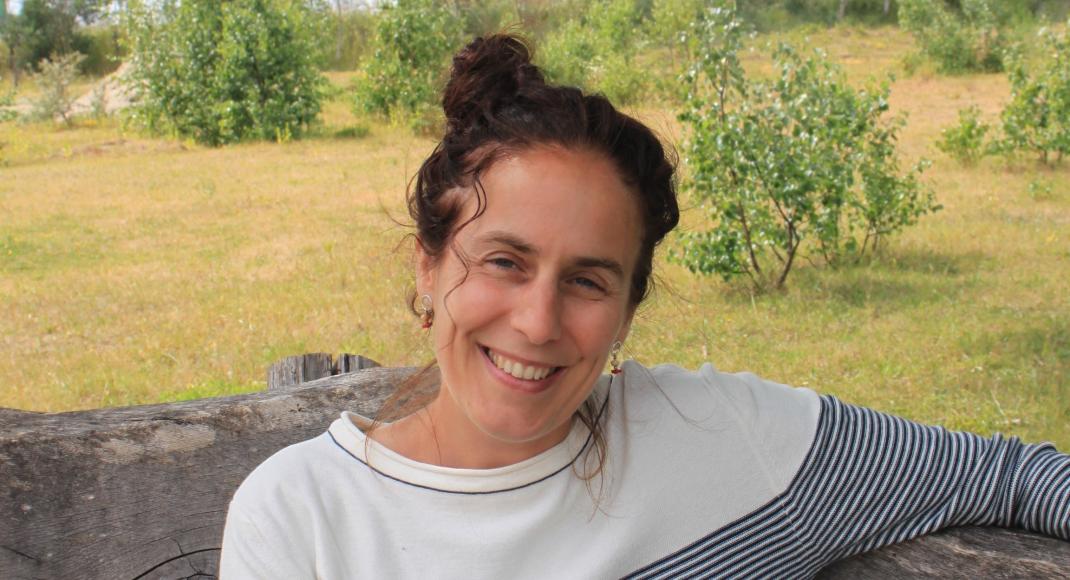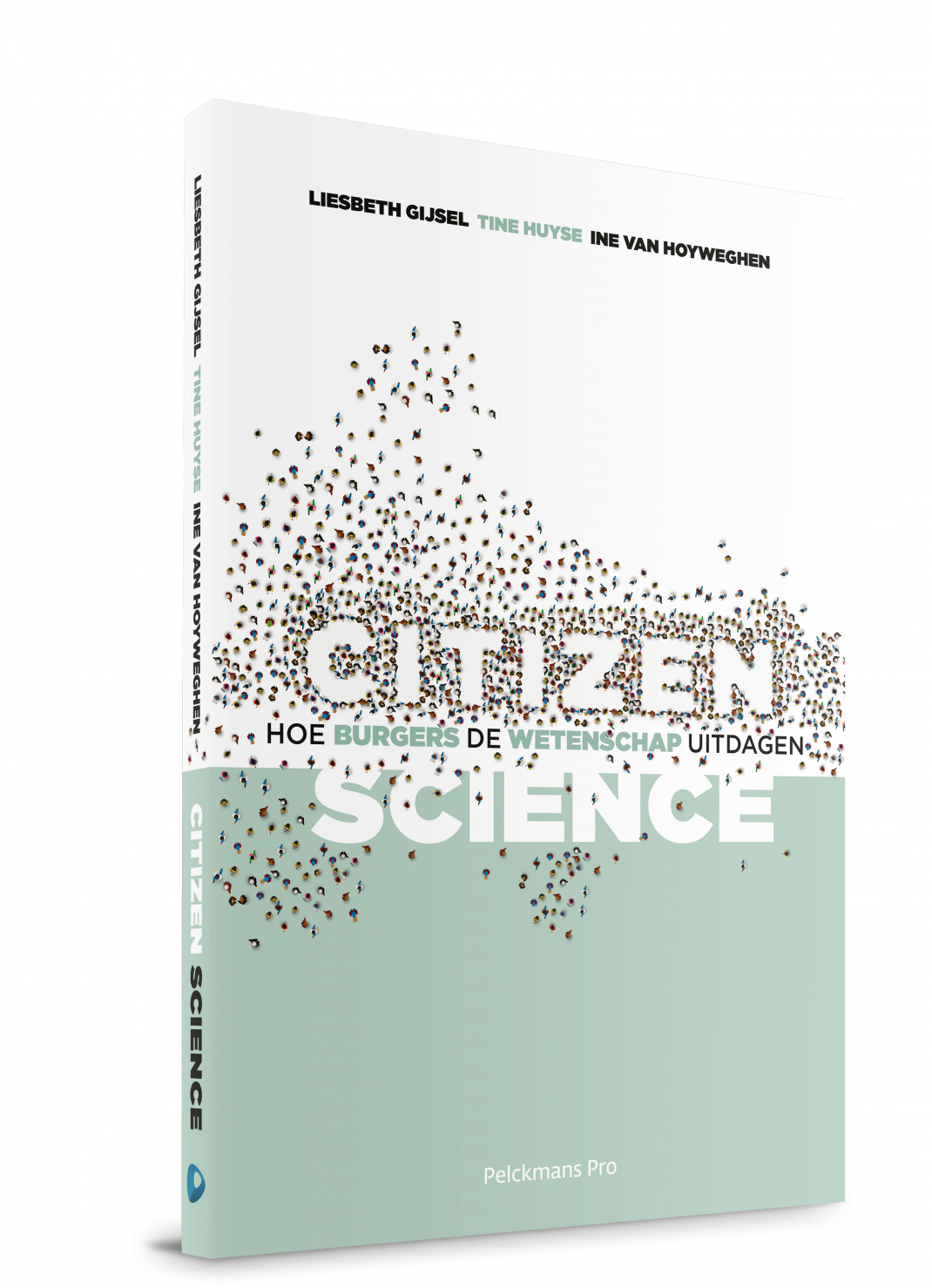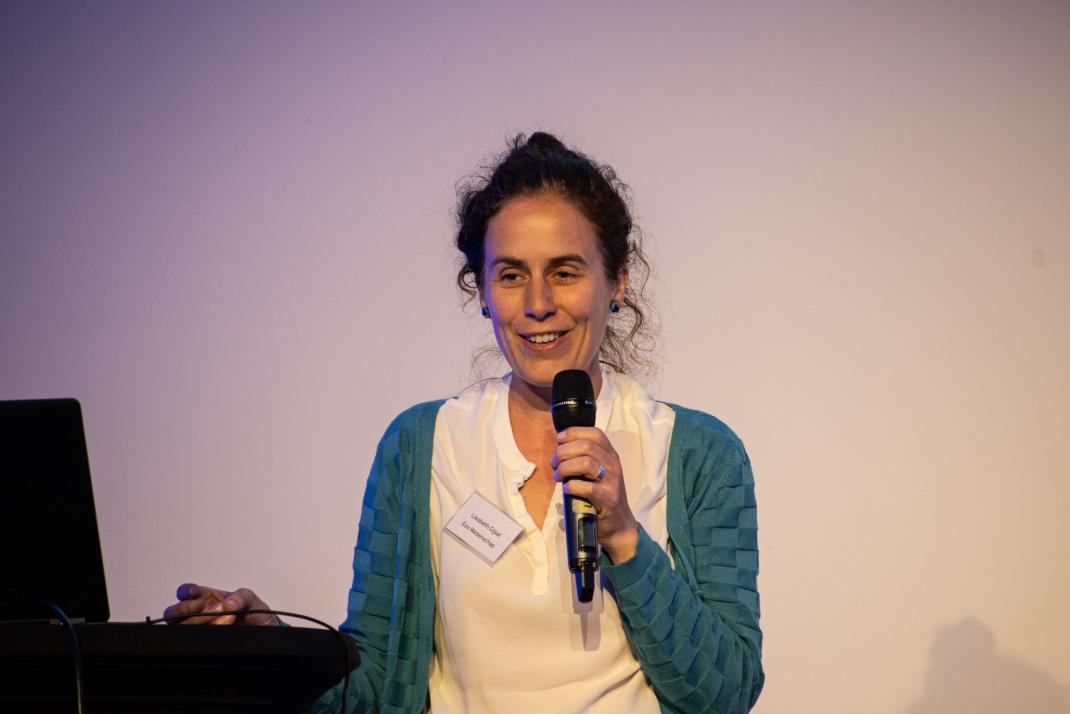Let's be scientists together
“There’s a great need for correct, understandable scientific interpretation.”, states Liesbeth Gijsel, editor-in-chief of Eos Psyche & Brein. As the initiator and coordinator of 'Iedereen Wetenschapper' ('Everyone’s a Scientist'), Eos’ platform for citizen science, she has seen the potential of citizen science in unlocking science for the general public.

Factual knowledge
The amount of specialised science journalists is limited. Liesbeth Gijsel only has a small number of colleagues with expertise in nature and the environment, aerospace, biotechnology, or other scientific fields. Most science journalists are responsible for all science news within their medium. That makes it complex for them to stay up to date and understand everything in all fields. It makes Liesbeth Gijsel’s job at Eos even more relevant. Just now, as science intervenes in our lives almost daily and fake news stories cropping up all over social media, there is a need for factual knowledge and a journalistic, objective view on science.
Democratic ability
Citizen science is an important asset for improving the scientific literacy and resilience of citizens. Citizen scientists experience what it means to collect, analyse, and question data in a scientific manner. Or to place societal and environmental issues, backed by data, on the public agenda.
This is one of the reasons why by 2014, Liesbeth Gijsel was an early supporter for the still relatively new (in Belgium at least) trend of citizen science. She took part in several projects on air pollution and the democratic potential of the projects surprised her. Gijsel did find a point for improvement however, the citizen science projects could use a professional boost of their communication. A separate page on the Eos website with calls for projects and a collaboration with the Young Academy on citizen science finally resulted in the current website 'Iedereen wetenschapper'.
Added value
'Iedereen wetenschapper' is the reference citizen science platform in Flanders. The overview with short calls of projects, combined with messages on social media is working well. Time and time again, a multitude of readers find projects to their liking. Eos is not only a conduit for citizen science, but in some cases also an offline partner, such as for “de Grote Schelpenteldag” (the Big Shell Counting Day). The growing popularity of citizen science makes editor-in-chief Gijsel optimistic “The fact that the Flemish government invested in citizen science projects, made scientists as well as citizens realise the effectiveness of it. Scientists no longer react scornfully to the idea of involving the general public in their research. On the other hand, citizens don’t have to stay on the sidelines of scientific research anymore. Still, we must safeguard against this evolving too far, where scientists want to incorporate citizen science in their project at all costs, especially if there is no added value. Funding by the Flemish government is already limited in time. Every project must pursue a finality or involvement of the project in a bigger picture, so the efforts made won’t be lost.”
“The fact that the Flemish government invested in citizen science projects, made scientists as well as citizens realise the effectiveness of it. Scientists no longer react scornfully to the idea of involving the general public in their research. On the other hand, citizens don’t have to stay on the sidelines of scientific research anymore.”
Extreme citizen science
People who follow up the European and international tendencies in the field of citizen science know about communication, inclusion and participation. “There is a lot of inspiration to find abroad,” Liesbeth Gijsel explains. “For example, in the UK with prof. Muki Haklay, the codirector of the ‘Extreme Citizen Science’ Research Group at the University College London or the Zooniverse Group at Oxford University.” Extreme Citizen Science is citizen science that takes shape in a bottom-up way, an “extremely” participatory type of collaboration between scientists and citizens.
On the other hand, various countries in Europe envy Flanders because of our knowledge centre Scivil. A centre like that means a lot for professionalising citizen science. Standard problems get better access to standard solutions, which makes an easier flow of expertise. Qualitative citizen science projects increase the scientific knowledge of the public, and we as science journalists are happy about that, so things have come full circle.
Liesbeth Gijsel wrote, together with Tine Huyse and Ine Van Hoyweghen, the book 'Citizen Science – Hoe burgers de wetenschap uitdagen' (“How citizens challenge science”). In eight stories you can read how varied citizen science can be. The book highlights all facets of citizen science and does not shy away from asking some critical questions.
Interview en tekst: Hilde Devoghel (Tales and Talks)

